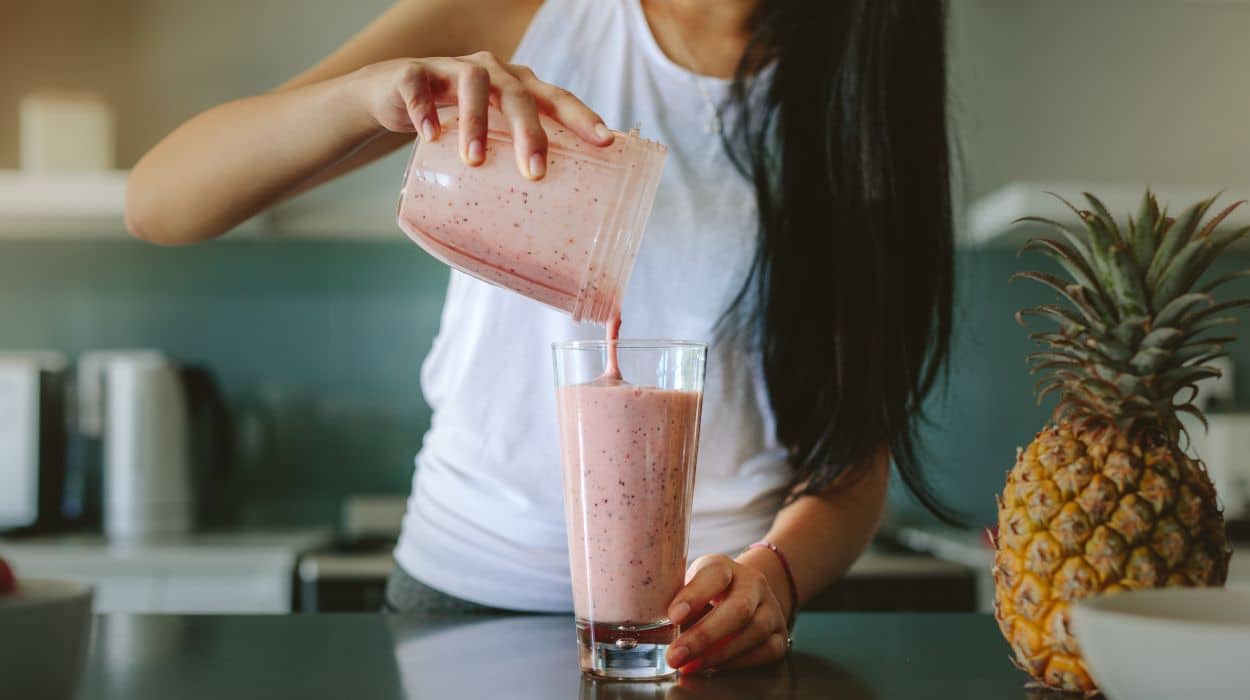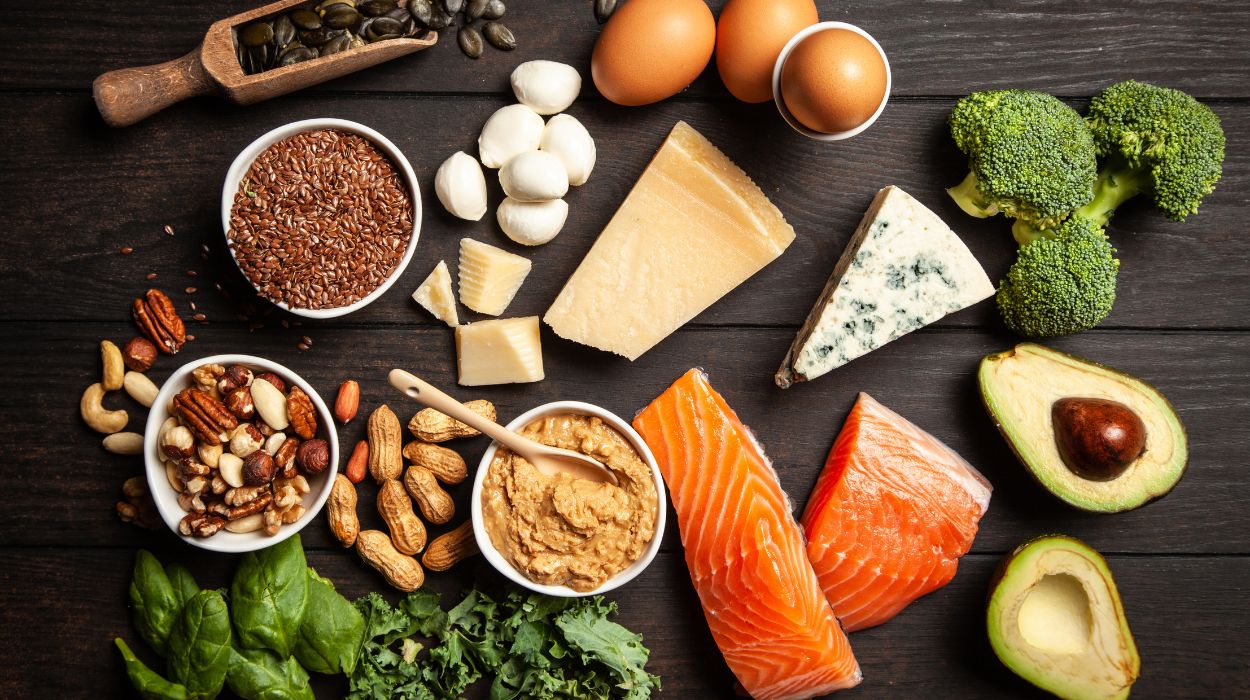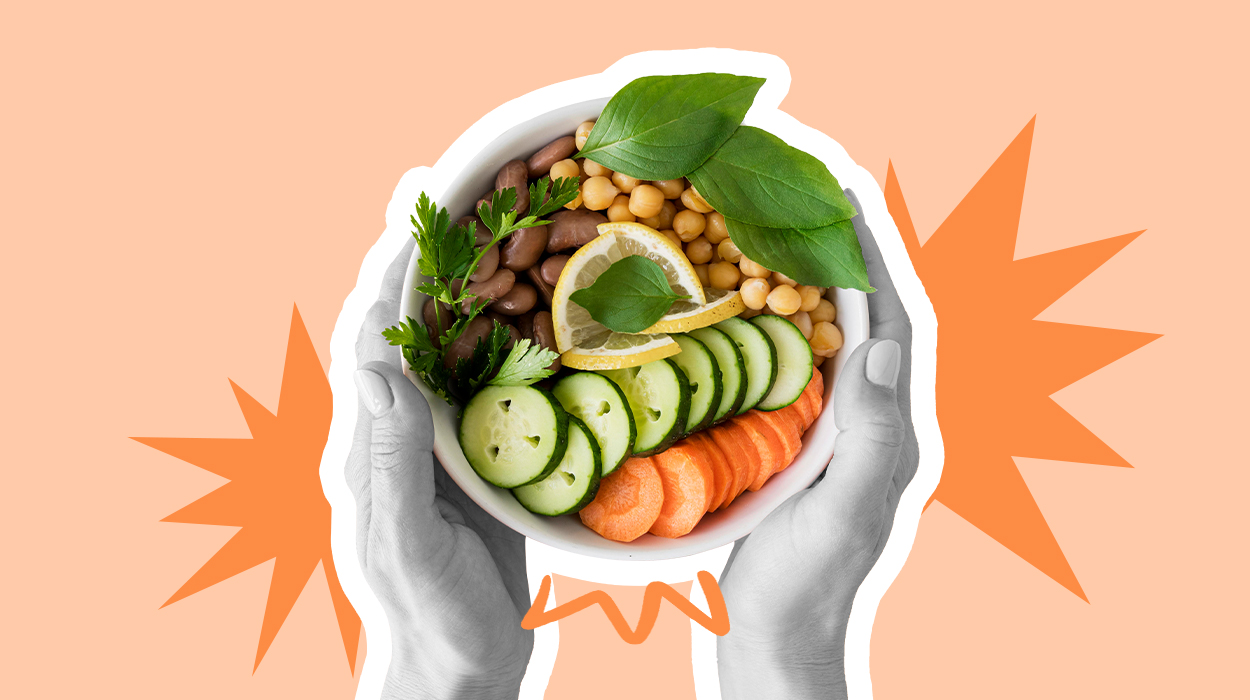Healthy eating habits can be as simple as choosing better quality food, cooking at home, and paying more attention to the ingredients in the products you buy. However, many of us haven’t learned the basics of healthy eating, especially since it’s been pushed to the back burner as a non-necessity in today’s world: Why cook when you can order in? Why avoid fatty food when you can just take an antacid? When trying to eat healthier, it can seem overwhelming if you don’t know where to begin. Consider these easy ways to get started!
6 Tips To Start Eating Healthy Foods 2024
- Cook once, eat twice
- Choose frozen fruits and veggies
- Don’t limit yourself to “breakfast, “lunch,” and “dinner”
- Eat real foods
- Balance your blood sugar
- Shop in the outer aisles of the supermarket
How To Start Eating Healthy: 6 Tips For Beginners
Cook Once, Eat Twice
When dining out, it’s impossible to know all the ingredients, additives, and portions that are going into your meals. Cooking at home is ideal, but it’s a time commitment. Instead of overburdening yourself with cooking three meals a day, seven days a week, try batch cooking, or “cooking once, eating twice.” This ensures you’ll have healthy, homemade meals for several days, having only gone to the “trouble” of cooking one time. Simply make large portions, then separate out what you want to eat now, and save the rest in Tupperware in the refrigerator (they should be good for a few days), or better yet, the freezer, where it can stay good for even longer. When you’re ready to eat the leftovers, they’ll be ready for you to just pop in the oven or microwave.
Choose Frozen Fruits And Veggies
Most Americans don’t get nearly as many fruits and vegetables in their diet as they need to for optimal health. This is partly due to the maintenance of storing and cooking produce and how little time Americans tend to devote to home cooking. Thankfully, there are frozen fruits and veggies!
Frozen fruits and veggies are life savers, especially for those who are new to cooking or simply don’t have a lot of time. Firstly, when you buy them frozen, they are already pre-washed and chopped up – that’s already a huge time saver.
Also, it can be challenging to eat all your fresh produce before it goes bad – that’s the bitter-sweet truth about real, fresh food: It’s supposed to go bad. But, just like saving leftovers in the freezer, with frozen fruits and veggies, you always have them ready to go whenever you need them, and they won’t go bad the way fresh produce does after just a week. Take as much as you want for the moment, toss them in a smoothie, heat them up in oatmeal, or enjoy them frozen.
If you’re worried about quality, don’t be. Frozen fruits and veggies are picked and then frozen at the height of their ripeness. This means they are frozen with their nutritional value intact.
Don’t Limit Yourself To “Breakfast,” “Lunch,” And “Dinner”
Whoever said pancakes are a “breakfast” food and salmon is a “dinner” food was just trying to sell us on an image. This holds no relevance, nutritionally speaking. In fact, pancakes and other sugary foods are not ideal to eat first thing in the morning on an empty stomach. This will spike your blood sugar – you’re much better off with a good source of protein, some vegetables, and healthy fats.
One of the healthiest eating habits you can adopt is to balance all your meals, especially breakfast (which sets your energy levels for the rest of the day). A balanced meal means it contains protein, complex carbs (slow-digesting carbs), and fat. So, when looking for protein, it doesn’t have to be “eggs in the morning” and “salmon in the evening.” Likewise, avocados are healthy sources of fat, but there’s no rule that says avocados can only be eaten on avocado toast in the morning – they make a great side with lunch and dinner also!
So, focus on balancing all your meals and choosing healthy ingredients. Don’t worry about the labels – enjoy a salad for breakfast, omelets, and whole grain french toast for dinner, and watch your health improve.
Eat Real Foods

This may sound obvious, but it’s not for many individuals. We’re constantly facing food companies that go to great lengths to make us think their products are healthy when most of them are not. In fact, if the product has commercials for it on television, it’s probably not real food, and therefore, not safe to eat.
Real foods are plants such as fruits, vegetables, grains, beans, and nuts – anything that grows directly from the ground, on a plant or tree, and is unaltered. For example, an apple is real food, whereas apple sauce is not – it has been altered, it’s processed, and contains added ingredients (unless it’s homemade applesauce). Animals and eggs are also whole foods – chicken, fish, steak, eggs. However, they too need to be in their most original form, unaltered. Think about an organic chicken breast you cook versus fast-food chicken nuggets. See the difference?
Balance Your Blood Sugar
Balancing blood sugar is essential for well-being, more so than many of us realize. Many people associate blood sugar balance with diabetes, therefore, those who don’t have it may think blood sugar balance doesn’t concern them. Additionally, we’re not taught how to balance our blood sugar and why it’s important, so it’s easy to ignore this basic, yet necessary practice.
When we ingest any carbohydrate, it turns into sugar or glucose – this is the fuel our body runs on. We do need carbs. Each time we eat carbs, our pancreas produces insulin, a hormone that helps transport and convert the sugar into energy. However, when we eat sugar alone (without protein, fiber, and fat) and/or when we eat too much sugar, we can cause glucose spikes, and over time, our pancreas can’t keep up with the high demand. This can lead to a decrease in insulin sensitivity, and then excess sugar ends up in our blood (high blood sugar).
Glucose spikes cause a cascade of inflammatory reactions in the body that disrupt hormone balance, contribute to premature aging and weight gain, and trigger the development of disease.
At each meal, consider how you can keep your blood sugar balanced. For one, eat a balanced meal every 4-5 hours. Secondly, try not to eat any carbohydrates (that includes sugar, starches, grains, and even fruits) alone, but rather, always pair them with protein, fat, and fiber. When you do eat carbs, eat them last (start with veggies, protein, and fat, then finish with carbs and sweets as dessert).
Shop In The Outer Aisles Of The Supermarket
Have you ever noticed how a grocery store is laid out? The perishable foods (fruits, veggies, meats) are all in the outer aisles. On the flip side, packaged, processed foods such as canned soups, pasta, cereals, and snacks tend to be on the inner aisles. Think about the importance of eating real foods and consider that those foods are supposed to go bad. These are the foods you want to put in your body, as opposed to foods that have a long shelf life. There is a saying that goes, “The longer the shelf life, the shorter yours.” If food has so many chemicals and preservatives that it can stay fresh on a shelf for years, it’s not so good for humans.
There are always exceptions, such as canned wild-caught fish, canned beans, bagged rice, and other foods that are not necessarily unhealthy just because they are packaged. However, fresh is always best, so stick with perishable foods that can be found in the outer aisles.
Food Lists For Healthy Eaters

All fruits, vegetables, and other whole foods have nutritional contributions to health, however, if you’re looking for some pantry staples to get you started, check these out!
Canned Wild-Caught Tuna, Sardines, or Salmon
Fresh fish is best, but canned fish is also great to keep in the cupboard. Just be sure it’s wild-caught, which means it contains no dye or antibiotics the way some farmed fish do.
Nuts And Seeds
Nuts and seeds are packed with fiber, protein, slow-digesting carbs, and healthy fat. They are versatile and easy to take with you anywhere!
Avocado
Avocado is the only fruit that contains a significant amount of healthy fat. It’s sold everywhere, delicious, and makes a great addition to salad, sandwiches, smoothies, and toast.
Pasture-Raised Eggs
Eggs are an excellent source of protein and vitamins, however, some eggs come from chickens that didn’t grow up in ideal living conditions. Pasture-raised eggs mean the chickens lived and fed on a pasture, which makes their eggs a healthier option.
Berries
All fruits have merits, but berries have significant amounts of antioxidants while also being low-glycemic (this means they are relatively low in sugar). Make sure to eat a variety – strawberries, raspberries, goji berries, cranberries, blueberries, blackberries, etc.
Unsweetened Yogurt
If dairy is not your thing, you can easily get a plant-based yogurt from any supermarket. Just be sure to get an unsweetened version. You can always add your own berries, honey, and nuts.
Leafy Greens
Stock up on leafy greens. Though all vegetables are healthy, greens have anticancer properties, iron, and lots of other vitamins and minerals. They’re also easy to incorporate into any meal.
Herbs and Spices
Keep a variety of herbs and spices in your spice cabinet and use them liberally in your cooking. Herbs and spices have medicinal properties including digestive support and detox support. Plus they make food taste amazing!
Why We Crave Junk Food Over Healthy Food
Cravings are complicated. There isn’t one reason why people crave foods, nor is there one explanation for why certain people crave specific foods, while others crave different foods. It’s bio-individual – unique to each person.
Cravings can be physical, or chemically driven, especially in the case of salt and sugar. The tongue has salty and sweet taste receptors which, when in contact with those tastes, send high levels of pleasure neurotransmitters (like dopamine) to the brain. This makes us feel good instantly, so much so that once the feeling has passed, we immediately want more. In fact, it’s been shown that in animals, sugar is more addictive[1] than cocaine.
Chronic stress raises our cortisol which also plays a role in cravings. Additionally, poor sleep drives cravings significantly – have you noticed that we tend to crave more carbohydrates and sweets when we haven’t slept well the night before? It’s the body’s way of compensating for a lack of energy.
Finally, many cravings have emotional roots. Everyone has their own comfort foods, which are foods we tend to gravitate toward, consciously or unconsciously, to help us relive pleasant feelings or soothe difficult emotions.
How Eating Healthier Will Change Us
Every cell in our body is impacted by what we put in it, therefore, there’s no limit to how our body can improve once we start eating healthier. Many chronic and life-threatening diseases, including heart disease, colon cancer, and Alzheimer’s have been traced back to poor diet, too many ultra-processed foods, excess sugar, and not enough fiber. By simply eating whole foods, and a plant-based diet (mostly plants), you’re already setting yourself up to be less at risk for these diseases.
Healthy eating helps the body stabilize hormones, lose weight, and improve the diversity and strength of the gut microbiome. Quality food makes a significant impact on immunity, as well as emotional and cognitive health – adjusting the diet to contain less processed foods can help improve anxiety, depression, and other mood disorders. In fact, red food dye, which is added to many processed foods, has been shown to worsen ADHD symptoms.
The bottom line is, “You can’t exercise your way out of a bad diet.” All healthy habits have their place, but there’s no substitute for a nutritious, healthy diet filled with fruits, vegetables, organic meats and fish, and whole grains.
Conclusion
There’s no substitute for whole, nutritious food. Eating healthy is more than just eating nutrient-dense foods – it’s about the habit of cooking, buying healthier brands, and being deliberate in how, when, and how much you eat, while also paying attention to your body’s unique needs (you may feel healthier eating more carbs, while someone else may feel healthier eating less). If you’re new to eating healthy, start with one of these tips and slowly tackle new tips until you find your rhythm.
Frequently Asked Questions
The most important thing is to eat healthy, unprocessed foods – these include fruits, vegetables, whole grains, and unprocessed meat. Any food store will carry whole foods, even if they’re not organic. They don’t need to come from a farmer’s market or health food store. Just do the best you can.
While organic foods are generally healthier than non-organic, it’s not always necessary to eat everything organic. Some fruits and vegetables are more heavily sprayed with pesticides than others (for example, berries have more pesticides than bananas). It’s okay if not everything is organic.
Generally speaking, yes! However, healthy is also a relative term. For example, avocados are very healthy, however, if they make you feel bloated or give you a rash, they’re not healthy for you. Consider that all whole foods have health benefits and let that be your base, but from there, pay attention to what your body tells you.
 Expert's opinion
Expert's opinion
